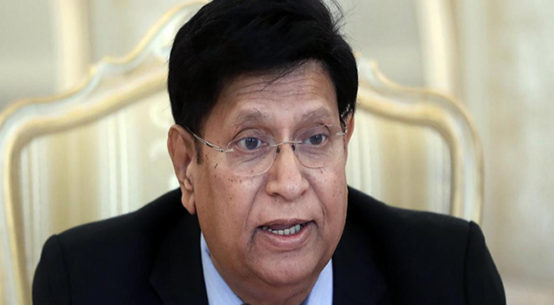
Stakeholders voiced deep disappointment with the outcomes of COP29, particularly in relation to climate finance and the Just Transition Work Programme, during a post-UN Climate summit dialogue held on Tuesday in Dhaka.
The event, organized by Friedrich-Ebert-Stiftung (FES) Bangladesh in cooperation with OSHE Foundation and YouthNet Global, brought together climate experts, trade unions, youth activists, and government representatives to reflect on the summit’s shortcomings and look ahead to future climate negotiations.
The panel discussion, moderated by Dr. Felix Gerdes, Resident Representative of FES Bangladesh, underscored the persistent struggle for a fair transition from fossil fuels to renewable energy. Although COP29 was seen as a missed opportunity, panelists emphasized the ongoing need to amplify the voices of marginalized communities, including trade unions, indigenous groups, and youth, in shaping future climate policies.
The failure to establish a meaningful Just Transition Work Programme (JTWP), a key priority for many stakeholders, was the primary point of frustration. Despite this setback, there was a collective commitment to continue advocating for a Just Transition at future COPs, particularly at COP30 in Brazil. Many attendees vowed to push for concrete action to ensure that the most vulnerable communities are not left behind in the global shift towards renewable energy.
Prof. Dr. Ainun Nishat, a leading climate expert, called for stronger multi-sectoral cooperation to address the climate crisis. He urged Bangladesh to integrate renewable energy into its national energy security plans and prioritize adaptation measures for vulnerable populations facing the worsening effects of climate change.
“Climate action must be multi-sectoral,” Nishat said. “We need to ensure that our most vulnerable communities are protected.”
Nayoka Martinez Backstrom, First Secretary for Environment and Climate at the Swedish Embassy in Dhaka, pointed out the significant barriers to securing global climate funds. She stressed the importance of credible data and national focal points to streamline access to climate financing. Without these mechanisms, securing funds for climate action remains a formidable challenge for many countries.
Md Ziaul Haque, Director of Bangladesh’s Department of Environment, echoed the call for inclusivity in climate policy. He stressed that a Just Transition must address not only energy concerns but also social justice, worker rights, decent work, and loss and damage. “No one should be left behind,” he said, underlining the importance of integrating all voices, particularly from the most vulnerable communities, in climate policies.
As a presenter, Dr. S M Morshed, Vice Chair of OSHE Foundation, highlighted the need for increased financial and technical support to achieve Just Transition goals. He also stressed the critical role of collaboration between governments, civil society, and international organizations in driving climate action.
In a key note presentation, Sohanur Rahman, Executive Coordinator of YouthNet Global, expressed frustration at the lack of significant progress on the Just Transition Work Programme. He highlighted the previous year’s exclusion of labor rights from the UNFCCC’s climate framework and the disappointment that these critical issues remained unaddressed at COP29.
As a vocal advocate for youth-led climate action, Sohanur emphasized that young people must remain at the forefront of global climate negotiations. “The lack of progress at COP29 is a failure to protect future generations,” he stated. “It is crucial that youth continue to lead the charge and ensure that climate policies reflect the needs and voices of those most affected by climate change.”
The event featured an interactive session where attendees had the chance to engage directly with panelists on topics such as the role of trade unions in climate negotiations and the integration of agricultural concerns into climate policy. Participants discussed the importance of creating actionable policies that support workers and communities on the frontlines of the climate crisis.
Despite the frustrations with COP29, the event concluded with a message of optimism and renewed commitment to the fight for climate justice. Ms. Saki Rezwana, Chairperson of OSHE Foundation, reminded participants that the struggle for a Just Transition is far from over. “We must remain committed to collaboration and action to secure a just transition for all,” she said. “The struggle continues-our work is not done.”
Looking ahead to COP30 in Brazil in 2025, many are already preparing to ensure that future climate negotiations lead to meaningful advancements for the world’s most vulnerable populations. The call for a Just Transition is louder than ever, and the momentum for change continues to build, despite the disappointments of COP29.

